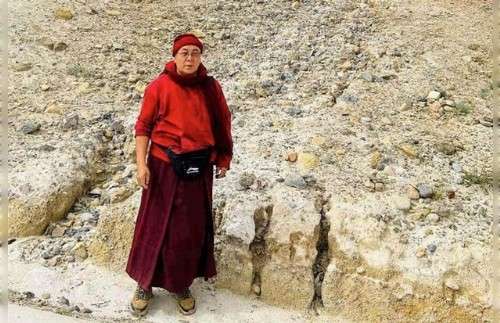Uighur rights advocates in the United States are ramping up efforts to persuade the U.S. Congress to pass a bill focusing on China’s growing persecution of the predominantly Muslim minority group in the country’s Xinjiang province.
Uyghur American Meshrep Group, an organization consisting of 30 Uighur activists, visited Washington last week to push U.S. officials to help as many as 2 million residents of the Xinjiang Uighur Autonomous Region who are believed to be undergoing compulsory education in Chinese prison camps.

They urged Congress to ratify the Uyghur Human Rights Policy Act of 2019, which aims to hold Chinese officials accountable for alleged abuses against the minority group.
“We hope that this is the time that America stands up for Uighurs who are now facing a hopeless future for their existence in their own homeland,” the group’s founder, Bahram K. Sintash, told VOA. “I am a victim’s family member. My father is in the concentration camp.”
Sintash said his father, Qurban Mamut, 68, worked as the chief editor of Xinjiang Civilization magazine before his detention in early 2018.
“We want to be the voice of the voiceless. Uighurs need help, especially from Americans,” Sintash told VOA, adding that his team found many U.S. lawmakers were willing to endorse the bill.
The legislation, introduced by Republican Sen. Marco Rubio of Florida and Democratic Sen. Robert Menendez of New Jersey, is pending ratification. It calls for the creation of positions within the State Department and U.S. intelligence agencies to monitor China’s ongoing internment programs and surveillance against the Uighurs.
“Today, we are all Uyghurs, and China’s horrific and systematic abuse of its Uyghur minority is an affront to all people who value the principles of universal human rights,” Menendez said in a statement last week after the bipartisan bill was passed by the U.S. Senate Foreign Relations Committee. “And Beijing’s imposition of systemic mass surveillance in Xinjiang should send a chill down the spine of every person who values humanity, human life, and ethnic, religious and cultural freedom.”
Xinjiang, in northwest China, is home to nearly 22 million people and has the greatest concentration of Muslims in China. There are an estimated 13 million Uighurs and other Turkic Muslim minorities in the region.
Conflict in the region is not new. The Chinese government says it is trying to combat “the three forces of evil” of “terrorism, extremism and separatism” in the region. On the other hand, Uighurs say the government is not willing to give Xinjiang Uighur Autonomous Region its powers as defined in the Chinese constitution.
Re-education camps
The Chinese government has in recent years faced growing international condemnation over the growing detention of Uighurs and other Muslims in so-called re-education camps.
Officials in Beijing do not disclose how many people are detained as part of their internment programs, but U.S. officials say the number could be closer to 3 million.
Chinese officials say their measures in Xinjiang are needed to combat the threat of terrorism.
They say the camps are nothing but vocational training centers and have asked the U.S. to “stop interfering” in their domestic affairs.
Rights groups, however, say detainees in the camps face death, torture and various abuses such as being forced to renounce Islam and consume pork and alcohol. The groups repeatedly criticize the international community for not doing enough to hold Chinese authorities accountable.
U.S. bill
If enacted, the Uyghur Human Rights Policy Act of 2019 will impose travel and financial sanctions against Chinese officials involved in the detention programs in Xinxiang. It will also ask the FBI to investigate whether Chinese authorities intimidated Uighurs living in the U.S. in an effort to repatriate them for indoctrination.
Sophie Richardson, China director at Human Rights Watch, told VOA the bill is “extraordinary” and “historic” because it serves as the first stand-alone legislation addressing the concerns of Uighurs inside and outside of China.
“I think that it takes on so many different dimensions of the current crisis and provides protections. And there are provisions that speak to everything from protections for diaspora communities in the U.S., all the way through to finding ways to sanction companies that are complicit in the Chinese government’s repression in Xinjiang,” said Richardson.
“For Uighurs, the bill represents a spark of optimism that their plea for help is finally heard, and Chinese authorities could be pressured to release their family members held in camps,” according to Nury Turkel, chairman of Washington-based Uyghur Human Rights Project.
“This provides much-needed hope for the Uighurs inside and outside of China, because hope is the best weapon against oppression,” Turkel said, adding that “many among [the] Uighur diaspora in the U.S. experience psychological breakdown due to their missing family members in Xinxiang.”
“In the face of the atrocities they have been going through, Uighurs and other Turkic Muslims found a hope that a government, a people, is coming for the defense in light of all the diplomatic and regional interests that are critical in the relationship with China,” he added~VOA
















